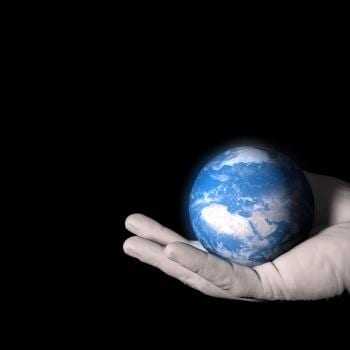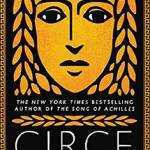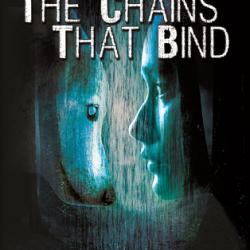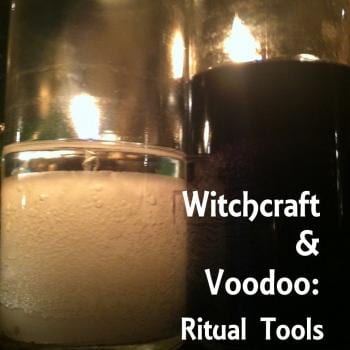
I was considering “Peace” recently for another article I was writing. It’s been stated in some places that “peace” is a “feminine” value. I don’t think it’s rocket science to figure out that I’m not a “peaceful” sort of woman. Keeping my mouth shut is not one of my greater skills, though I have worked hard over time to be more tactful about it. And then I was considering our culture’s assigned gender roles, and gender essentialism, which is currently a hot topic in our community and thus, one that I’ve been reading a lot about.
This is not something that is widely known about me, but I once questioned my gender identity. I grew up in a weird conservative backwater that people hardly believe when they’re told about it, considering it was in the eighties. And gender roles in my area and neighbourhood were very restrictive. In my house, I was expected to behave in certain ways because they were “ladylike.” The males were not expected to do any housework but if I didn’t, I was lazy. I got Barbies and my brother got toy robots and remote control cars; I was expected to wear frilly dresses and curl my hair, which I inevitably destroyed because I was the world’s biggest tomboy and the world’s biggest klutz. I was more often in the woods than not, climbing trees; and when I wasn’t, my nose was in a book. My mother wondered why I, at ten, never left the house anymore; and it was because I got in trouble every time I wrecked a piece of frilly clothing or risked my health by doing something physical that wasn’t a team sport (which I hated.)
I dabbled in the Christianity of my friends but I rejected the whole mess when I was told that God had created half the human race to be subservient to the other half and I was in the slave caste (I’ll be honest; it might have worked for me if it had been the other way around.) I couldn’t understand why I was called “bossy” and “aggressive” when I said what I thought articulately and directly (which I was helpless not to do because that’s my nature) and the boys were not.
Puberty came early and hard and if anything, the confusion got worse. My dad stopped spending time with me and began to “do guy stuff” with my brother more. I was criticized constantly for my weight, my acne, my hair, and my manner of dress. Too tight and I was “dressing like a slut;” too loose and I was “dressing like a bag lady.” My sexuality was so fully repressed that I actually developed a complex and an eating disorder over it; yet my brother, two years younger than myself, was encouraged to date. Then I discovered that I liked girls as well as boys, and the confusion became even worse.
Even when I dated my first girlfriend, she insisted on being the “butch.” She wore jeans and plaid shirts and cut her hair short and rolled her cigarettes up in her sleeve and insisted that I be the one to sit in her lap. I didn’t understand it. I told her that if I wanted a boy, I would date one. Why couldn’t we both just be girls together?
I did not fit. In no way was I suited to be a woman in the man’s world I grew up in. I considered all the things that seemed to define “masculinity” and “femininity,” and I thought; was I born in the wrong body? Was I actually meant to be a boy?
Discovering Paganism helped. Suddenly I learned that it was possible to have a Goddess; that the Divine could be feminine as well as masculine. I cannot overemphasize the importance of this; of being able to see a powerful divine being with breasts like mine and hips like mine and an “innie” instead of an “outie.” I immediately embraced the Warrior archetype. No one who knew me would have been surprised; it was Diana who first called me to worship as a Pagan and a Witch before I even knew what such things were (a story I’ll tell another time,) and I took Joan of Arc as my matron saint or “guardian spirit,” so to speak. I was delighted when I discovered Dianic witchcraft! Yes, at last, a religion that was by women for women! A place all our own, to be all that we are not permitted to be in the Patriarchy.
It was in the process of a weekend intensive in Women’s Mysteries that I finally became comfortable in my own skin. I was not born to the wrong gender; my culture has the wrong ideas about my gender! I know many other women who found fulfillment in this same experience. I know a handful of trans men for whom this was a turning point also; and a recognition that it was not just “societal constructs” that made them feel as though they were men on the inside, but a genuine and legitimate dysphoria.
I ventured into the community of Dianic Witches and Reclaiming-influenced Craft with joy at having found my spiritual home at last. But I did not realize how unique my teacher was, beautiful, strong Crone that she is. Once I had left her teaching, even in the wider community I encountered gender essentialism. Apparently women are soft and nurturing; men are hard and strong. Women receive and men take. Women are the purveyors of peace; men are the purveyors of war. Humanity has to adopt more “feminine” methods of conflict-resolution and decision-making. Men, who are all servants of the Patriarchy, are the enemy. We should put them on an island somewhere, teach them the wrongful nature of their ways, and keep a small handful for breeding.[1]
I just can’t agree with this. I like men. Also, they are people just like me so why should I regard them as the enemy? Tell me how that attitude is any better than “a woman’s place is in the home” or “if she dresses like that, she’s asking for it?” And why should we have any more tolerance for this than the opposing view?
If “peace” is a feminine value, where is the place for women like me? Am I less of a woman because I am not peaceful or nurturing? Is my partner Erin less of a man because he is peaceful? Is my partner Jamie less of a man because he is nurturing? Why do people who come to my house still look to me and say, “The house looks really nice, Sable”? I have not a lot to do with it. Jamie is the housekeeper. He keeps a beautiful home for us, and thank the Gods because I get caught up in projects and forget for weeks at a time! Erin cooks dinner almost every night and runs all the errands; I can make about five dishes with reasonable skill and otherwise I would just eat sandwiches or takeout. My job in the relationship is to win the bread. I deeply admire my partners for their skills and I know they respect me for mine. Why is that not sufficient for any of us? People are still sneering at men who are homemakers, saying they are too “lazy” to get a “real job.” Women are sneered at if they don’t keep the house and work a full time job.
Although it is changing now, in same-sex relationships for many years there was usually a “butch” and a “femme.” The “butch” was always the “dominant one.” I think this comes from the idea that the “penetrated” is subservient to the “penetrator.” This, to me, speaks volumes about the long way we still have to go towards true “gender equality.” Can my vulva not be a kissing (or potentially devouring) mouth instead of a sheath for a sword? Can a man not cuddle softly into the protective arms of his female lover without losing his manhood somehow?
Just like Circe in Game of Thrones, our own suffering in being forced to conform to a societal norm that hurts us makes us act aggressively towards the younger generation when they do not bow to the same expectations that we were forced to bow to. We call other women “sluts” when they do not dress or act in a way that conforms to our idea of how a woman should. My mother-in-law is my worst critic when it comes to my domestic (lack of) skills, and it is the mothers and grandmothers of cultures that practice female circumcision who circumcise their granddaughters.
In recent years, it seems there is a vocal contingent in the women’s spirituality and feminist movements who are going out of their way to alienate people. We alienate men who want to be our allies because they act too much like men. We alienate heterosexual women by telling them that their sexual preference (which, I would say, is as inborn as any other) makes them victims by nature, because according to some feminist theory, heterosexual sex is rape by definition. (It astounds me how those who claim this completely fail to see how this utterly disempowers women and women’s sexuality.) We alienate transgender women by accusing them of “trying to force their male privilege into our safe space.” (Believe you me, I am sure that is the farthest thing from their minds!) Then we wonder why all of a sudden, “feminist” has become a dirty word.
Gender essentialism is a feminist issue. It is because things that are traditionally considered “feminine” are regarded as being “lesser” that the penetrated is thought to be the “lesser” partner in any relationship; even cultures that had historical places for gay men have told us that. A gay man is denigrated in our culture because he is viewed to be “lowering himself” to the woman’s role. A lesbian is denigrated in our culture, and often subjected to abuse and “corrective rape” because she “doesn’t respect her place.” Transgender and gender-queer people challenge our comfortable assumptions even further, and they too are often subjected to denigration, abuse and “corrective rape” and other forms of violence.
I believe this subconscious assumption also has a terribly damaging effect on relationships, resulting in huge power struggles where there should not need to be any. It is the trans community who tell trans people they are not being “trans enough”; it is the gay and lesbian community who tell people they are not being “gay enough”; it is the feminist community who tell men that they can’t be feminists and women that they’re not being “feminist enough.” This is just more prejudicial judgment of what is appropriate gender-based behaviour; only the perspective has changed. In fighting monsters we often become reflections of them. And this is not something we care to admit to. If we really believed our own press on a visceral level, we would not have any of these logically inconsistent ideas and we would not say these things to each other.
I absolutely agree that our culture’s current ideas about gender and sexuality are so dangerously messed up that they cause genuine psychological damage to those who do not fit the pigeonholes (like me.) But I don’t see how it helps for us to just assign different roles based on gender. That’s just refusing to confront the issue. There must be some essential difference between men and women that isn’t just a societal construct; otherwise there would be no such thing as transgender dysphoria. But I think that difference is indefinable, and I think we must refuse to allow that difference to define us. To do otherwise forces square pegs into round holes and limits our fullest potential as human beings.
[1] None of this is directly quoted, but the sentiments are echoed in The Spiral Dance by Starhawk, The Chalice and the Blade by Riane Eiler, and The Holy Book of Women’s Mysteries by Z. Budapest specifically.
















